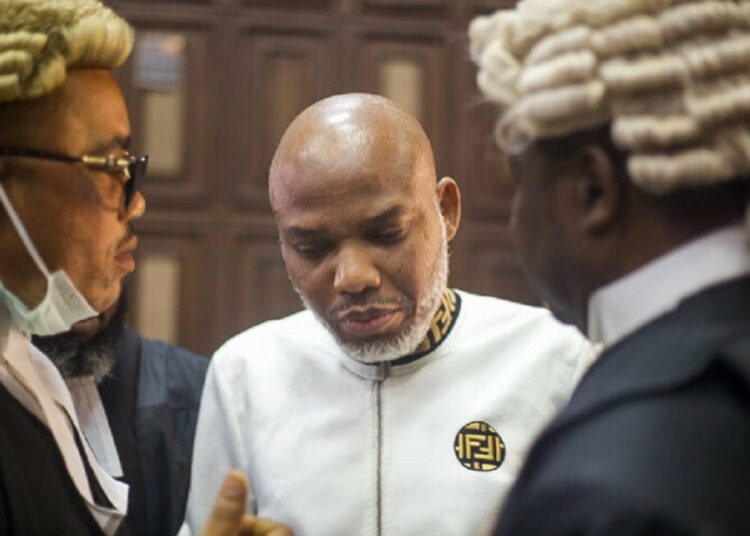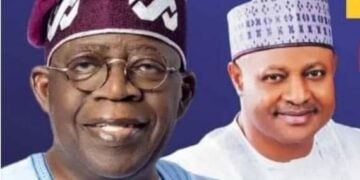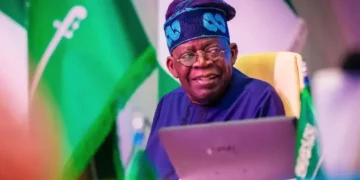The defence strategy of detained leader of the proscribed Indigenous People of Biafra (IPOB), Nnamdi Kanu, has drawn sharp reactions after he informed the Federal High Court in Abuja on Monday that he would no longer call witnesses or enter any defence in his ongoing terrorism trial.
Recall that at the proceedings, Kanu told the court that after reviewing the case file, he had concluded that there was “no valid charge” against him. He argued that since the charges were, in his view, unlawful, there was no basis to proceed with any defence.
“I have gone through the case file and realised that there is no valid charge against me. I am convinced that I have been subjected to an unlawful trial, and therefore, there is no need to conduct any defence,” Kanu reportedly told the court.
The trial judge, Justice James Omotosho, however, advised Kanu to seek the opinion of criminal law experts before proceeding with his decision. The judge directed him to file a written address stating his reasons and to serve the prosecution same.
Justice Omotosho then adjourned the matter until November 4, 5, and 6 for the adoption of final written addresses, either based on Kanu’s stance that the prosecution failed to prove its case or for him to open his defence should he change his mind.
However, reacting to the latest twist, a human rights lawyer and activist, Inibehe Effiong, described Kanu’s decision as “a very risky gamble,” expressing concern about the legal implications of his decision.
“Nnamdi Kanu’s legal strategy is confusing at this point,” the lawyer wrote in a Facebook post on Monday. “The Court had previously overruled his no-case submission. It is no longer open to him to contend that he has no case to answer.”
He explained that under Nigerian criminal law, once a no-case submission was dismissed, a defendant can only choose between two options— to open a defence or rest his case on the prosecution’s evidence.
“He has indicated that he no longer intends to open his defence,” the lawyer continued. “If my assessment is wrong, then palpable confusion has ensued. He is taking a very risky gamble.”
Nonetheless, he acknowledged that the law does not impose any obligation on a defendant to prove innocence.
“The fact that Kanu has elected to pursue his case in this manner is not going to be construed as an admission of guilt,” he clarified. “However, the evidence adduced by the prosecution team would be deemed as unchallenged, save for the evidence elicited under cross-examination.”
Effiong added that the court will still have to determine whether on the basis of the admitted evidence, the prosecution has discharged the burden of proof placed on it in law.
“I don’t know who’s advising Kanu, or what his motivation is, but he is taking a very risky decision,” he added
Legal observers said Kanu’s decision effectively placed the burden on the court to determine whether the prosecution’s evidence, left unchallenged, meets the constitutional standard of proof beyond reasonable doubt.
The IPOB leader, who has pleaded not guilty to terrorism-related charges, was expected to open his defence after dismissing his former legal team earlier this month.
Monday’s proceedings marked another dramatic turn in a trial that has dragged on for years, with both sides trading procedural and substantive arguments over jurisdiction, legality of arrest, and sufficiency of evidence.





